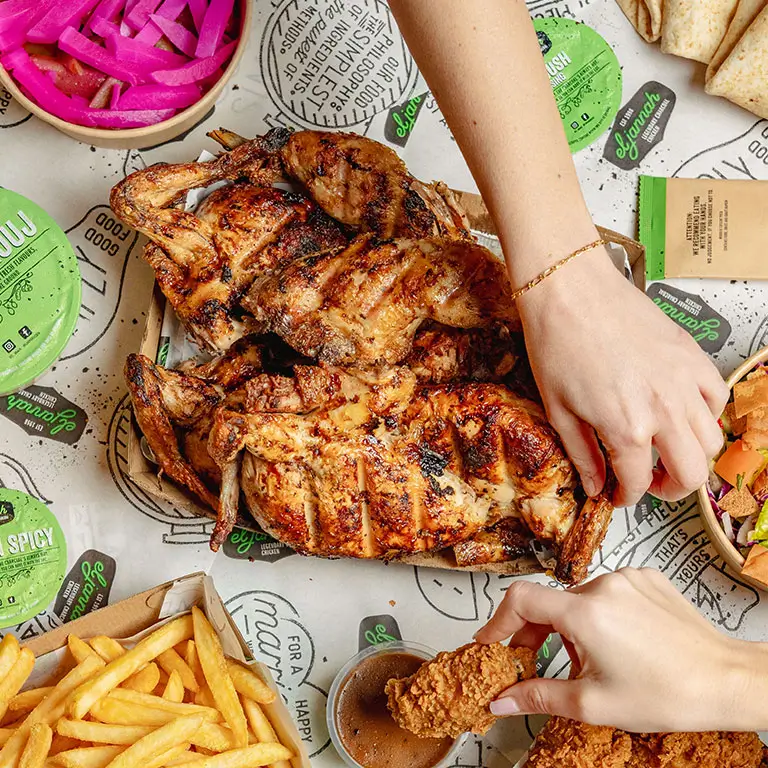Halal chicken is a Muslim way of preparing food – it must be killed in a humane fashion, and all the blood is drained from the meat. A Muslim cleric oversees the killing to ensure it is carried out correctly.
Far more than a simple dietary classification, halal chicken represents a profound intersection of religious principles, ethical considerations, cultural traditions, and culinary practices that have been carefully developed over centuries. The term “halal” originates from Arabic, literally meaning “permissible” or “lawful.” When applied to chicken and other meats, it encompasses a comprehensive framework that governs every aspect of an animal’s life, from its birth to its eventual transformation into a meal. This approach is not merely a set of dietary restrictions but a holistic philosophy that integrates spiritual, ethical, and nutritional considerations.

Religious and Spiritual Foundations
Islamic dietary laws form the core of halal practices. These guidelines are derived from the Quran and the Hadith, providing detailed instructions on food preparation, animal treatment, and the spiritual intentions behind food consumption. For Muslims, consuming halal chicken is not just about nutrition—it’s an act of worship and a manifestation of religious devotion.
What is Halal Meat in the Quaran?
In Surah Al-Ma’idah Ayat 3, it is written:
“Prohibited to you are dead animals, blood, the flesh of swine, and that which has been dedicated to other than Allah, and [those animals] killed by strangling or by a violent blow or by a head-long fall or by the goring of horns, and those from which a wild animal has eaten, except what you [are able to] slaughter [before its death], and those which are sacrificed on stone altars, and [prohibited is] that you seek decision through divining arrows.”
The Comprehensive Halal Chicken Production Process
The journey of halal chicken begins long before slaughter. Unlike conventional meat production, halal guidelines emphasise exceptional animal welfare. Chickens must be:
- Raised in humane, spacious environments
- Fed natural, wholesome diets free from harmful additives
- Protected from unnecessary stress or discomfort
- Treated with respect and compassion throughout their lifecycle
These standards ensure that the chicken’s life is valued and that its well-being is prioritised from the moment of birth.
Ethical Slaughter
The slaughter process in halal chicken production is perhaps the most distinctive and carefully regulated aspect. Known as “zabiha” or “dhabiha,” this method involves several critical requirements:
Mental Preparation: The person performing the slaughter must be of sound mind and spiritually prepared, often reciting a prayer that acknowledges God’s name and the sanctity of the act.
Sharp Instrument: A sharp knife must be used to ensure a quick, clean cut that minimises the animal’s suffering.
Complete Blood Drainage: The swift cut severs the carotid artery, jugular vein, and trachea, allowing for rapid blood loss. This process is believed to be more humane and hygienic, as it removes most of the blood from the meat.
Conscious Intention: The slaughter is performed with deliberate awareness and spiritual mindfulness, transforming what could be a mechanical process into a meaningful ritual.
The animals are also stunned before the slaughter, as is in alignment with Australian law.
Beyond Tradition: The Modern Significance of Halal Chicken
Global Economic Impact
The halal food industry has become a significant global economic force. Recent estimates suggest that the global halal food market, including chicken, is valued at over $1.1 trillion back in 2013, reflecting its growing importance beyond religious communities.
Nutritional and Health Considerations
Halal chicken often correlates with higher quality meat production. The emphasis on animal welfare, natural feeding, and minimal stress can result in:
- Potentially lower stress hormones in the meat
- More natural muscle development
- Potentially improved meat tenderness and flavour
- Reduced use of antibiotics and growth hormones
Is Charcoal Chicken Halal?
The charcoal chicken served across El Jannah is halal. We only partner with certified Halal suppliers for our chicken and all meat products.
Addressing Common Misconceptions
Many people mistakenly view halal guidelines as restrictive. In reality, they represent an expansive, compassionate approach to food production that:
- Prioritises animal welfare
- Emphasises ethical consumption
- Promotes mindful food preparation
- Connects dietary choices with spiritual and moral values
Halal Chicken: A Tradition of Respect and Intentionality
Halal chicken is far more than a type of meat. It is a testament to the potential of food to embody deep cultural, spiritual, and ethical values. It represents a holistic approach that sees food not just as sustenance, but as a profound connection between humans, animals, and the divine.
As global food systems continue to evolve, the principles underlying halal chicken offer a compelling model of responsible, mindful consumption—a tradition that nourishes not just the body, but the soul.